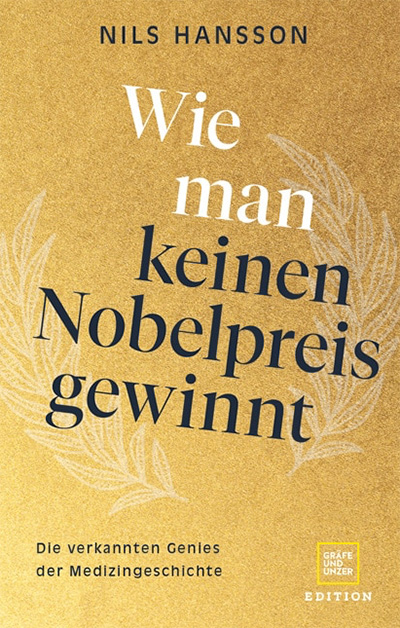 During the first week of October, we are inundated with information about why Nobel laureates receive their awards. It is powerful and comprehensive information, which we take for granted. This year, the works of the prize winners were also very substantive, and fully consistent with Alfred Nobel’s will.
During the first week of October, we are inundated with information about why Nobel laureates receive their awards. It is powerful and comprehensive information, which we take for granted. This year, the works of the prize winners were also very substantive, and fully consistent with Alfred Nobel’s will.
But why do you get it? no Nobel prize? After all, there is a great deal of cutting-edge research, especially in medicine, that is not rewarded. One of those who asked this question is Nils Hansson, a medical historian and associate professor at the Heinrich Heine University in Düsseldorf. Niels Hansson, who began his career at Lund University, has published the book “Wie man keinenNoblepreis gewinnt” (How Not to Win the Nobel Prize) just in time for the announcement of the Nobel Prize this year. Behind the book are ten years of extensive research work, with review of archival material, interviews and study visits to a large number of universities, from Leiden and Cambridge to McGill in Montreal and Sapienza in Rome, to name but a few.
Hanson comes up with five main reasons why outstanding researchers do not receive the award:
- Thousands of artists were not lucky. One must not be active in many areas of research. An example is German surgeon Sauerbruch, who has been nominated more than 60 times after developing thoracic surgery and joint prosthetics. So one amazing discovery weighs more than just an impressive balance sheet.
- Do not walk on beaten paths. Hanson quotes ice hockey legend Wayne Gretzky as saying: “Go where the puck is going – not where it was.” In the middle of the last century, there were many applications for advances in cardiac surgery, such as heart and lung development. Robotic and transformative surgery, but it was difficult to pinpoint individual scientists who were smarter than others.
- Visionaries don’t succeed. Physician Themistocles Gluck actually built artificial joints at the end of the 19th century, but it took several decades before they came into use. Stockholm physician Gustav Zander was nominated at the beginning of the 20th century for his idea of introducing gyms on a large scale. Both were ahead of their time and did not receive the approval of the award committee.
- Controversial candidates lose. The eccentric Austrian physiologist Eugen Steinach believed that vasectomy would slow aging in men. Although celebrities such as Sigmund Freud and William Butler Yeats followed his advice, the repeated nominations were not well received.
- The discovery has surpassed the “best before date.” In the first year of the Nobel Prize, Rudolf Virchow was nominated on the basis that no physician had played a greater role in the development of medicine since Hippocrates. The Nobel Committee preferred to focus on research conducted in the new century (the twentieth century), leaving Virchow without a prize.
In addition to these five categories, there are additional contributing factors:
- Women are underrepresented. Men benefit.
- Researchers in Europe and the USA are over-represented.
- Researchers in some specialties, especially surgery, orthopedics, dentistry and anesthesiology, are severely underrepresented – and, Hanson adds, researchers in the history of medicine.
- Networking plays a big role. A Nobel laureate often works with another Nobel laureate.
Niels Hansson’s book is resourceful because it asks the question of why researchers get their prizes. It also conveys a comprehensive and instructive history of the Nobel Prize in Physiology or Medicine. In addition, it is based on extensive research.
There should be plenty of material for further publications about the Nobel Prize – both about those who have already received the award and about those left without it. What we see now seems like the tip of the iceberg, but it is advice that is easily accessible. I would highly recommend the Swedish translation!
Lakartidningen.se

“Falls down a lot. Internet fanatic. Proud analyst. Creator. Wannabe music lover. Introvert. Tv aficionado.”



More Stories
More than 100 Republicans rule: Trump is unfit | World
Botkyrka Municipality suspends its directors after high-profile trip to New York
Huge asteroid approaching Earth | World